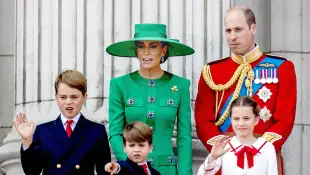- King Charles and Camilla travel to Australia and Samoa
- Charles interrupts his cancer treatment
- These precautions have been taken for this purpose
King Charles (75) will travel to Australia and Samoa with Queen Camilla (77) from October 18th to 26th. The original plan was to visit New Zealand, but on the advice of his doctors the program was shortened.
More about King Charles:
A Buckingham Palace spokesman said: “In close consultation with the Prime Ministers of Australia and New Zealand and taking into account the timing and logistical challenges, it was decided to limit the visit to Samoa and Australia.”
Strict precautions: King Charles’ first big journey
Since his diagnosis, the king has only made one foreign trip, and indeed to France for the D-Day commemorations in June. The upcoming trip to Australia, his first official trip as monarch to one of the Commonwealth countries where he is head of state, will be significantly more extensive.
It includes a long flight and numerous appointments in Sydney and Canberra. Therefore, strict measures were taken to make the journey as pleasant and safe as possible for the king.
1. Medical arrangements on board
On his travels, King Charles III. always accompanied by a Royal Navy doctor. He has researched the nearest hospitals in advance and is carrying important medical equipment, including a mobile defibrillator. The doctor always stays close to the king so that he can react quickly in an emergency.
2. Blood supplies while traveling
Additionally, the king travels with personal blood supplies to be prepared in the event of a blood transfusion. “There is no guarantee that you will receive the correct blood type at your destination”explained Queen Elizabeth II’s former press secretary, Dickie Arbiter.
3. Precautions during the flight
Regardless of his cancer treatment, King Charles has spoken in the past about swollen hands while flying. To avoid this, he must drink enough water during the flight, regularly hold his hands above heart level and massage the affected areas. The doctor accompanying you can provide support in this regard.
More about the British Royals:



